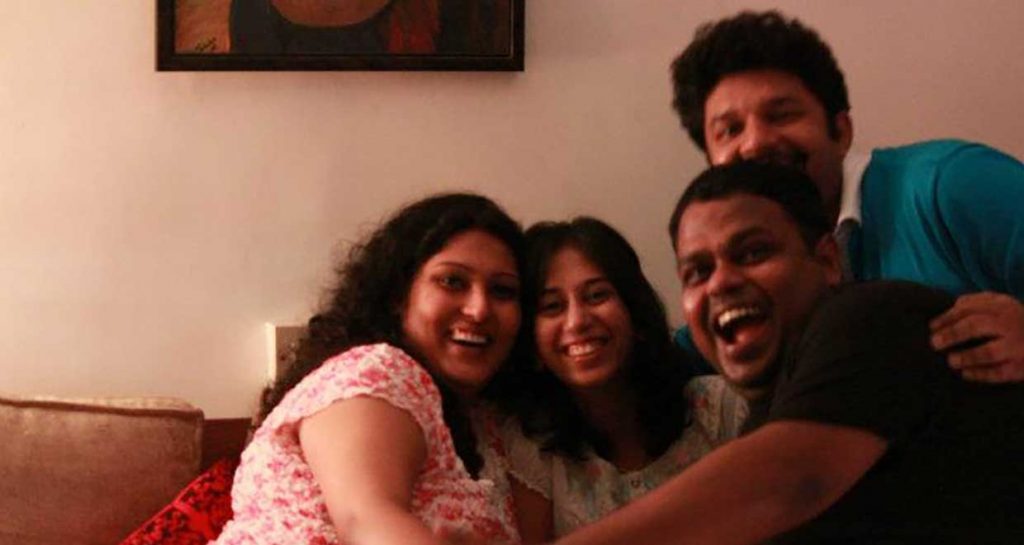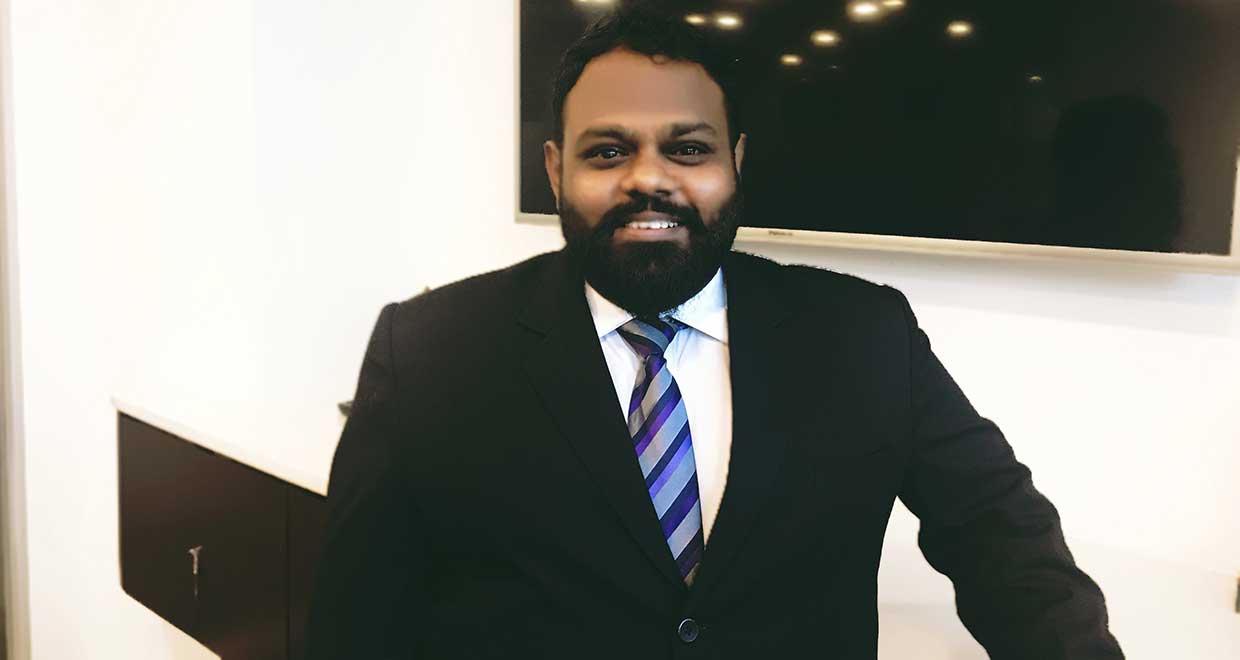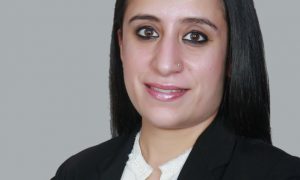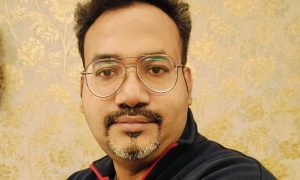Karthik Somasundram graduated in law from NALSAR, Hyderabad, batch of 2004. He currently heads Disputes practice at KLaw’s Mumbai office. Prior to joining K Law, Karthik was a Senior Associate with DSK Legal and prior to that with Paras Kuhad & Associates. Karthik specialises in dispute resolution in corporate, commercial, securities and investment matters.
In this interview we speak to him about:
- His time at NALSAR
- His internship experience
- His role as Partner at KLaw
How would you like to introduce yourself to our readers?
I am litigator by choice. However, I am trained as a disputes and a transactions lawyer. I am a wildlife and photography enthusiast and recently qualified as a deep sea diver. Presently, I head the disputes practice at KLaw’s Mumbai office.
What motivated you to pursue law?
I am a first generation lawyer. I did not aspire to be a lawyer. I wanted to join the Air Force but I didn’t get around to that. We were in Bangalore when NLSIU was founded. Since then it was my Dad’s desire that my sister and I become lawyers. After my 12th grade I chanced upon a few application forms and a few entrance tests later, it started.
Give us a brief overview of your NALSAR experience for our readers. What is it about NLUs that makes them stand out, as compared to non-NLUs?
We were the second batch of NALSAR and I only have fantastic memories from our time there. Three of my closest friends are from my time at NALSAR and I have known them for over seventeen years now! Our time at NALSAR was not what it must be like today, I imagine. We stayed in make shift hostels for a year before we moved to the beautiful campus that you can visit today. From the second year we lived on the present campus and for about two to three years there was construction activity all around us. Few of the structures today were not there even when we graduated. However, the best that NALSAR offered was in the form of few of the professors! I think we studied Constitution and Administrative Law from the finest professors at the time. We also interacted with the sitting Judges of the Supreme Court and the Andhra Pradesh High Court at that time. NALSAR opened doors and gave us experiences that (probably) only NLSIU was giving its students, back then. We had access to libraries and resources that few practising lawyers had at that time. Today, everyone has access to these resources and the internet has made everything accessible. When we started, the full potential of the internet was not known, let alone the ability to exploit it. NALSAR gave us an understanding of that potential early on. We participated in international and national moots and the university had the resources to support the students in those endeavours. I think we were the first amongst the law schools to organise a fest (‘Summons’) and students from most of the law universities and colleges participated. It was lot of fun. Lot of impromptu discussions and arguments on different aspects in classrooms— as also during power outages in the evenings during the monsoons. A discussion that has stayed with me was when a junior (practising in the UK now) wondered if he could be ‘stateless by choice’! The world had started to change by 9/11 and we lived the exiting times.
There are only two things that make the NLUs stand apart from other institutions. The first is the resources to provide opportunities to students and the other is infrastructure. NLUs also benefit largely on account of the human element – professors and lecturers. That is not to suggest that there are no good professors and lecturers in the non-NLUs. A no-brainer analysis will show that most commentaries and authorities are by non-NLU professors and most of the professors and lecturers from the NLUs are students of non-NLU professors. I still remember the week that Late Professor Sathe spent at NALSAR about ten or twelve years ago. I can’t recollect the lectures from back then, but the faculty at NALSAR hung by every word he said and they followed him around everywhere. However, if the non-NLU professors and lecturers are not compensated at industry standards, this too will become another differentiating factor.

What kind of internships did you undertake during your student years? Any memorable ones?
In my zeal to figure my area of interest, my internships targeted most areas of practise. I have interned with firms and lawyers on the transaction side, litigation, intellectual property and even maritime practice. The time when I interned in the chambers of the then Solicitor General in the Supreme Court, Late Mr. Kirit Raval, is the most memorable one. I was wide-eyed during my entire stint there and therefore contributed little or nothing, I am sure. I was heading into the fifth year I think and I had not yet made up my mind and I remember sitting through all his briefings/conferences in his office in the Supreme Court and I followed him and his chamber juniors everywhere!
In your opinion, what are the law school centric activities that you would recommend as necessary experiences for every law student?
From a résumé perspective, I think one needs to experience all the activities on offer to gain experience(s) first hand. Also, if you do not try all the activities or even a few of them, how will you know what interests you? College activities can also help open up many avenues and therefore determining interests, I think, should be the endeavour.
Having said that, since the entirety of our professional life is spent ‘communicating to convince’ – a client, counter contracting party and their attorneys, judges or even a point of view, I suppose activities that help in enhancing communication skills should be explored. It can be in the form of debates, moot courts, publishing, undertaking field work and research, etc. I started mooting in my third year at NALSAR. It was quite late to start but we did fairly well, I think. It was fun. We won a few and lost many more! Looking back now, those experiences feel like the trailer to the movie that we are experiencing now!
What are your areas of specialisation and how did you go about choosing these field?
I am a disputes lawyer on the corporate-commercial side. I advise and represent on disputes arising from contractual arrangements, equity investments, lending and borrowing arrangements and securities transactions. I did not plan for this area of practice. I experienced this kind of work along with transactions work and other kinds of litigations and I enjoy this kind of work the most. Hence.
What are the challenges that one needs to prepare himself/herself for when they step out of the comfort of a law school and into the real working world?
Be prepared to work hard. There is really no shortcut there and no magic potion to make it work otherwise. Experience is the only teacher. Nothing in law school will prepare you for when you become a service provider. So it is only when you start working that you start learning bits that actually matter. Don’t stop because of setbacks and tough bosses. ‘Mistakes’ and ‘learning’ run parallel. If you don’t work, you won’t make mistakes and if you don’t make mistakes, you won’t learn. So don’t stop working or trying because of a mistake or because you are afraid of making other mistakes.
Give us a brief capsule of the life of a partner and your average working day experience.
A day usually starts and ends in a similar fashion—planning. The hours in between are when we execute the work/ assignment. As for the ‘brief capsule of the life of a partner’, it is similar to managers in other professions. It involves identifying and meeting client expectation and requirements, identifying the quickest and surest way of achieving it by deploying the right Associate/Senior Associate, etc., taking stock of progress and ensuring delivery. Therefore, it’s a result oriented approach that constantly needs fine-tuning or modification. To stay competitive, enhancement of knowledge is imperative and that is the other area that takes up significant portion of a week, even if not every day.
How are the young partners today different from the ones before them?
Each year there are thousands of young lawyers entering the profession and that directly results in increase in competition. There are hordes of lawyers catering to different segments and that constitutes the relevant client base. So apart from executing work, we are constantly trying to innovate and develop an edge over the others. The young partners of today specialise in their chosen area of practice and are not multi-disciplinarians like the stalwarts before them. Anand Desai of DSK Legal, Zia of AZB, Berjis Desai of JSA, M. L. Bhakta of Kanga & Co., and M P Barucha of Barucha & Partners, to name a few, are the last of the multi-disciplinarian practitioners. On account of the competition and shorter turnaround timelines, the partners of today are focused on excelling in their chosen area of practice and therefore there is a lot of specialisation.
Partners today also have ‘financial’ and ‘client acquisition’ targets that they need to meet in addition to servicing the client in the best possible manner. So the young Partners of today are facing more challenges than the ones before them and one needs to be prepared for that. A lot of movement in the legal market at the partner level is on account of these targets and these parameters are here to stay. So it is no longer adequate to be a good lawyer, one also needs to understand the business of operating a law firm as well.

Karthik with best friends from NALSAR days, Vishnu Dutt, Partner – Bharucha & Partners, Veena Shivaramakrishnan, Partner – Juris Corp, Priyanka Jain Atal, Senior Manager – Firstsource Solutions Limited.
How important are grades, in your opinion?
Grades are important. However, not in the manner of predicting if one is an exceptional lawyer. One may be fantastic in academics but may not be able to master the practical aspect of it and the other way around as well. However, grades are important in the sense of inculcating work ethics and valuing hard work which really is the only way up from being an Associate to a Senior Associate and further up.
I am not an expert and neither have I studied the workings of the Indian legal education system and therefore, not qualified to comment on it. However, as with any stream of study, an emphasis on understanding and analysis of the subject matter as opposed to knowing it verbatim, can only be positive.
Is there any other suggestion you would like to give to our budding lawyers?
If someone tells you that money is not important, please run very far away from that person. However, if you had to pick between money and experience, pick the latter always.


























